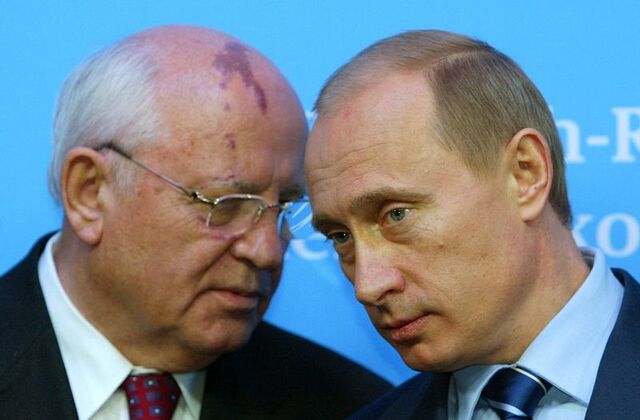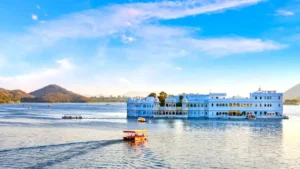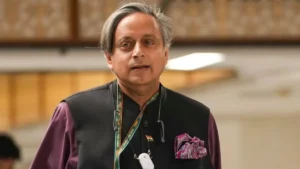Mikhail Gorbachev, who as the last leader of the Soviet Union waged a losing battle to salvage a crumbling empire but produced extraordinary reforms that led to the end of the Cold War, died. He was 91. The Central Clinical Hospital said in a statement that Gorbachev died after a long illness. No other details were given. Though in power less than seven years, Gorbachev unleashed a breathtaking series of changes. But they quickly overtook him and resulted in the collapse of the authoritarian Soviet state, the freeing of Eastern European nations from Russian domination and the end of decades of East-West nuclear confrontation.
Bank Maha Pack includes Live Batches, Test Series, Video Lectures & eBooks
His Reign:
His decline was humiliating. His power hopelessly sapped by an attempted coup against him in August 1991, he spent his last months in office watching republic after republic declare independence until he resigned on Dec. 25, 1991. The Soviet Union wrote itself into oblivion a day later. A quarter-century after the collapse, Gorbachev told The Associated Press that he had not considered using widespread force to try to keep the USSR together because he feared chaos in a nuclear country. “The country was loaded to the brim with weapons. And it would have immediately pushed the country into a civil war,” he said. Many of the changes, including the Soviet breakup, bore no resemblance to the transformation that Gorbachev had envisioned when he became the Soviet leader in March 1985. By the end of his rule he was powerless to halt the whirlwind he had sown. Yet Gorbachev may have had a greater impact on the second half of the 20th century than any other political figure. “I see myself as a man who started the reforms that were necessary for the country and for Europe and the world,” Gorbachev told The AP in a 1992 interview shortly after he left office.
About His Life:
- There was little in Gorbachev’s childhood to hint at the pivotal role he would play on the world stage. On many levels, he had a typical Soviet upbringing in a typical Russian village. But it was a childhood blessed with unusual strokes of good fortune. Mikhail Sergeyevich Gorbachev was born March 2, 1931, in the village of Privolnoye in southern Russia. Both his grandfathers were peasants, collective farm chairmen and members of the Communist Party, as was his father. Despite stellar party credentials, Gorbachev’s family did not emerge unscathed from the terror unleashed by Soviet dictator Josef Stalin: Both grandfathers were arrested and imprisoned for allegedly anti-Soviet activities. But, rare in that period, both were eventually freed. In 1941, when Gorbachev was 10, his father went off to war, along with most of the other men from Privolnoye.
- Meanwhile, the Nazis pushed across the western steppes in their blitzkrieg against the Soviet Union; they occupied Privolnoye for five months. When the war was over, young Gorbachev was one of the few village boys whose father returned. By age 15, Gorbachev was helping his father drive a combine harvester after school and during the region’s blistering, dusty summers. His performance earned him the order of the Red Banner of Labor, an unusual distinction for a 17-year-old. That prize and the party background of his parents helped him land admission in 1950 to the country’s top university, Moscow State. There, he met his wife, Raisa Maximovna Titorenko, and joined the Communist Party. The award and his family’s credentials also helped him overcome the disgrace of his grandfathers’ arrests, which were overlooked in light of his exemplary Communist conduct.
His Tenure As a Top Leader:
It wasn’t until March 1985, when Chernenko died, that the party finally chose a younger man to lead the country: Gorbachev. He was 54 years old. His tenure was filled with rocky periods, including a poorly conceived anti-alcohol campaign, the Soviet military withdrawal from Afghanistan, and the Chernobyl nuclear disaster. But starting in November 1985, Gorbachev began a series of attention-grabbing summit meetings with world leaders, especially U.S. Presidents Ronald Reagan and George Bush, which led to unprecedented, deep reductions in the American and Soviet nuclear arsenals. After years of watching a parade of stodgy leaders in the Kremlin, Western leaders practically swooned over the charming, vigorous Gorbachev and his stylish, brainy wife. But perceptions were very different at home. It was the first time since the death of Soviet founder Vladimir Lenin that the wife of a Soviet leader had played such a public role, and many Russians found Raisa Gorbachev showy and arrogant.
His Later Life:
- Although the rest of the world benefited from the changes Gorbachev wrought, the rickety Soviet economy collapsed in the process, bringing with it tremendous economic hardship for the country’s 290 million people. In the final days of the Soviet Union, the economic decline accelerated into a steep skid. Hyper-inflation robbed most older people of their life’s savings. Factories shut down. Bread lines formed. And popular hatred for Gorbachev and his wife Raisa grew. But the couple won sympathy in summer 1999 when it was revealed that Raisa Gorbachev was dying of leukemia. During his final days, Gorbachev spoke daily with television reporters, and the lofty-sounding, wooden politician of old was suddenly seen as an emotional family man surrendering to deep grief.
- Gorbachev worked on the Gorbachev Foundation, which he created to address global priorities in the post-Cold War period, and with the Green Cross foundation, which was formed in 1993 to help cultivate “a more harmonious relationship between humans and the environment.” Gorbachev took the helm of the small United Social Democratic Party in 2000 in hopes it could fill the vacuum left by the Communist Party, which he said had failed to reform into a modern leftist party after the breakup of the Soviet Union. He resigned from the chairmanship in 2004. He continued to comment on Russian politics as a senior statesman — even if many of his countrymen were no longer interested in what he had to say.




 Which Lake is known as the Jewel of Udai...
Which Lake is known as the Jewel of Udai...
 Which is the Largest Banana Producing St...
Which is the Largest Banana Producing St...
 Shashi Tharoor Conferred Honorary D.Litt...
Shashi Tharoor Conferred Honorary D.Litt...








